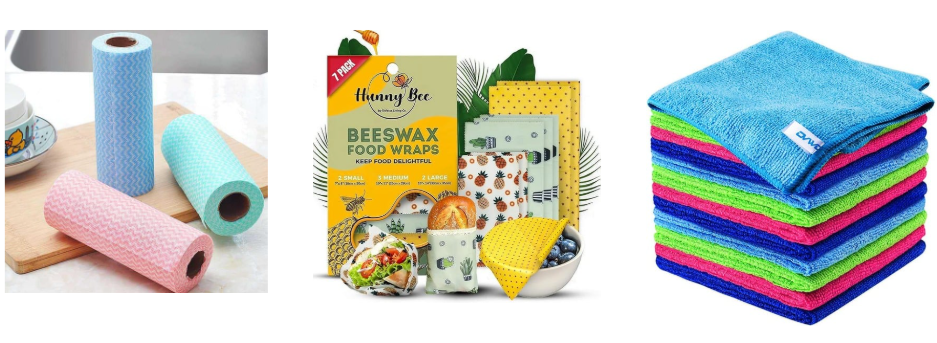7 Smart Kitchen Hacks That Save You at least £50 or more a Month
The kitchen is often the heart of the home - but it’s also one of the biggest drains on our wallets. From groceries to wasted food, small things we don’t really need add up quickly. The good news? With a few smart tweaks, you can save around £50 (or more) each month, without compromising on flavour, health, or convenience.
Here are 7 practical, real-life hacks you can start today.
1. Master the “Use-First” Box in Your Fridge
How many times have you bought salad leaves or yogurt, only to discover them moulding away in the back of the fridge a week later? Food waste is money waste.
Expired food in the fridge
How to fix this: Create a simple “Use-First” box - simply use a container or box where you place all items that need to be eaten soon (about to expire, half-used jars, opened packs). Every time someone opens the fridge, it’s the first thing they see.
Savings: Families waste an average of £60 worth of food a month. Cutting that by even 20–30% easily saves £10–£15
2. Batch-Cook and Freeze
Cooking from scratch every night is tiring, but relying on takeaways or ready-meals costs a fortune. So what’s the answer? Batch cooking.
Spend one afternoon making double or triple portions of meals like chilli, curries, or soups. Freeze them in portions. On busy nights, you’ve got instant home-cooked “ready meals.”
Batch cooking
Savings: If you swap 2 takeaways a month (£20–25 each) for homemade frozen meals, that’s like £40–50 saved
3. Swap Branded for Store Brands
We all have favourite branded products we love. But many everyday basics like flour, sugar, pasta, tinned tomatoes - taste nearly identical in supermarket “own brand” versions, often 30–50% cheaper.
Try a different approach this month: pick 5 items you regularly buy branded, and swap them for store-brand alternatives. Keep the ones that taste equally as good. E.g. Heinz beans or Lidl’s own beans. Oh I love those.
Swap branded food for store own food
Savings: Swapping just 5–10 items could save £10–15 per shop. Over a month, that’s £30–40
4. Get Creative with Kitchen Scrap Cooking
Those broccoli stems? They’re perfectly edible in stir-fries. Stale bread?
Turn them into breadcrumbs or make croutons. Herb stems? Great for flavouring soups
This isn’t about being fussy - it’s about making the most of what you already bought. Entire meals can be made from what many people throw away.
Carrots, onions, herbs for making stock
Tip: Keep a freezer bag of veggie off-cuts (carrot ends, onion skins, celery leaves). When it’s full, boil into a homemade stock and it actually tastes really good.
Savings: Reduces waste and stretches meals, easily worth £5–10/month
5. Plan Meals Around What’s On Sale
Impulse shopping is where budgets collapse. Instead of planning meals first, check supermarket offers first, then build your meal plan around discounted proteins and produce.
Example: If chicken thighs are on half price, that week’s meals could be chicken curry, traybake, and chicken soup
Savings: A family can save £10–15 a week just by flexing around offers = £40–60/month
6. Portion Control (Without Feeling Hungry)
Most families cook more than they actually need - and leftovers often get scraped into the bin. It really helps to use slightly smaller plates and measure dry ingredients like pasta and rice before cooking.
Use smaller plates
Rule of thumb:
Pasta = 75g dry per adult
Rice = 60g dry per adult
Savings: Cutting overcooked portions by 20% can save £5–10/month in wasted ingredients
7. Ditch Single-Use Kitchen Products
Paper towels, cling film, and disposable wipes add up over the year. Replace them with reusable alternatives:
Microfibre cloths instead of wipes
Beeswax wraps or reusable silicone lids instead of cling film
A washable kitchen roll
Not only eco-friendly, but also cheaper long-term.
Savings: At least £5/month
Reusable Kitchen rolls, Beeswax food wraps, micro fibre cloths
Putting it all together
Let’s add up those small wins:
Use-First Box: £10–15
Batch Cooking: £40–50
Brand Swaps: £30–40
Scrap Cooking: £5–10
Plan Around Sales: £40–60
Portion Control: £5–10
Reusables: £5+
Even if you only adopt half these hacks, you’ll easily save £50 a month - that’s £600 a year back in your pocket.
🌿PracticalGitti Thoughts
Don’t try all seven hacks at once. Pick two that feel easiest, and get into the habit. Once they’re automatic, add another. Small steps add up to big savings.
Want more practical money-saving tips?
I have also written a blog on 21 Practical Hacks to Save Time & Money Every Day.
Soon available: Download my free guide: 21 Practical Hacks to Save Time & Money Every Day






